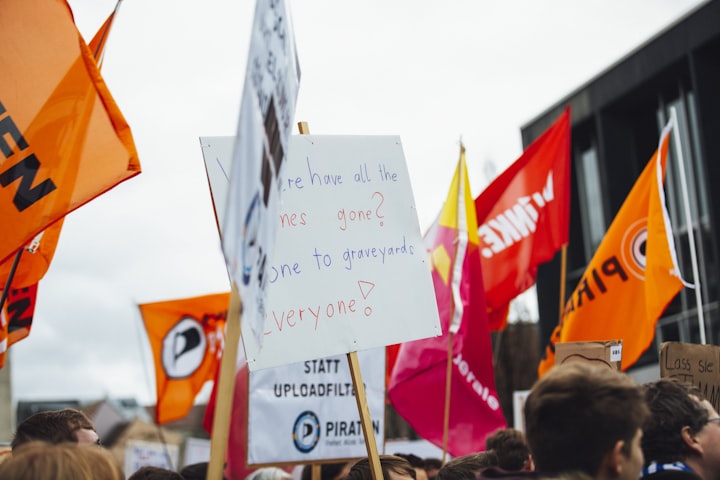The Role of Social Media in Political Campaigning
Social Media and Political Campaigning

In the digital age, social media has emerged as a powerful tool in political campaigning, revolutionizing the way candidates engage with voters and shape public opinion. Social media platforms such as Facebook, Twitter, Instagram, and YouTube have become integral components of political campaigns, enabling politicians to reach a wider audience, mobilize supporters, and influence political discourse. This article explores the significant role social media plays in political campaigning and its impact on the democratic process.
Increased Reach and Targeted Messaging
Social media provides political candidates with unparalleled reach and the ability to target specific demographics with tailored messages. Unlike traditional media outlets, social media platforms allow campaigns to communicate directly with potential voters, bypassing intermediaries. Candidates can reach millions of individuals in real-time, effectively disseminating their policies, values, and campaign promises.
Additionally, social media algorithms enable campaigns to target specific groups based on demographics, interests, and online behavior. This targeting capability allows candidates to focus their messaging on key constituencies and engage with voters who are most likely to support their platforms. Consequently, political campaigns can optimize their resources and efforts by tailoring messages to resonate with different segments of the electorate.
Real-Time Engagement and Feedback
Social media facilitates immediate and interactive communication between candidates and voters. Politicians can engage with the public through posts, comments, and live video streams, fostering a sense of accessibility and transparency. This direct interaction can help establish trust, humanize candidates, and create a personal connection with potential voters.
Furthermore, social media platforms provide a space for voters to express their opinions, concerns, and feedback on political issues. This feedback loop allows candidates to gauge public sentiment, understand the needs of their constituents, and adjust their strategies accordingly. By listening and responding to the concerns raised by citizens on social media, candidates can demonstrate responsiveness and adaptability, strengthening their connection with voters.
Rapid Dissemination of Information
Social media platforms excel at disseminating information rapidly and on a large scale. Candidates can use social media to share news, policy proposals, and campaign updates instantly. This immediacy ensures that information reaches voters promptly, bypassing traditional media gatekeepers and potential biases.
Moreover, social media enables campaigns to go beyond traditional campaign events and rallies by broadcasting speeches, debates, and town halls live to a global audience. This real-time access to political events increases transparency and allows individuals who cannot attend in person to participate and engage with the campaign process.
Mobilization and Grassroots Organizing
Social media has become a powerful tool for mobilizing supporters and facilitating grassroots organizing. Campaigns can create online communities, rally volunteers, and coordinate activities, such as door-to-door canvassing, phone banking, and fundraising efforts. Social media platforms provide a platform for sharing campaign-related content, encouraging supporters to become brand ambassadors and share information with their social networks, exponentially expanding a campaign's reach.
Additionally, social media enables the formation of online political movements and advocacy groups. These grassroots movements can raise awareness, mobilize support, and shape public opinion on specific issues. They can serve as catalysts for change, amplifying marginalized voices and promoting social and political causes.
Disinformation and Polarization
While social media has undoubtedly revolutionized political campaigning, it also poses challenges to the democratic process. The spread of disinformation and the creation of echo chambers have become significant concerns. False information can spread rapidly on social media platforms, potentially influencing public opinion and distorting political discourse. The lack of gatekeeping and fact-checking mechanisms inherent to social media makes it imperative for users to critically evaluate the information they encounter.
Furthermore, social media algorithms often contribute to the polarization of political discourse. Platforms tend to show users content that aligns with their existing beliefs, reinforcing ideological echo chambers and limiting exposure to diverse perspectives. This echo chamber effect can exacerbate divisions and hinder constructive dialogue among citizens.
Conclusion
Social media has fundamentally transformed political campaigning, providing candidates with unprecedented opportunities for reaching and engaging with voters. The increased reach, real-time engagement, rapid information dissemination, mobilization capabilities, and grassroots organizing facilitated by social media have reshaped the democratic landscape. However, the challenges of disinformation and polarization must be addressed to ensure the integrity and inclusivity of political discourse on social media. By leveraging the strengths of social media while being mindful of its limitations, political campaigns can harness its potential to foster meaningful connections, mobilize supporters, and drive democratic participation.





Comments
There are no comments for this story
Be the first to respond and start the conversation.